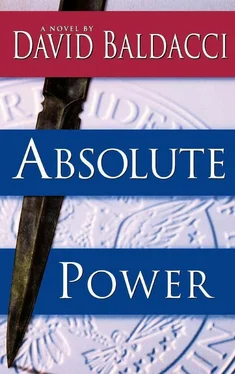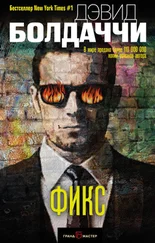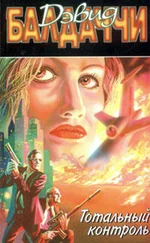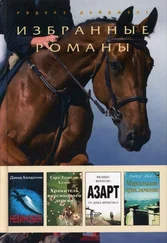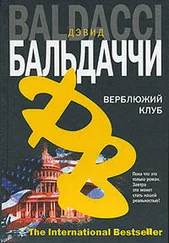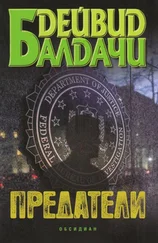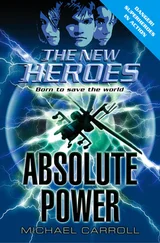Except for one person.
In saying his good-byes the President leaned into Walter Sullivan to embrace the older man and say a few private words. Sullivan smiled at the President’s remarks. Then the old man stumbled slightly but righted himself by grasping the arms of the President.
After his guests had gone, Sullivan smoked a cigar in his study. As he moved to the window, the lights from the presidential motorcade quickly faded from view. In spite of himself, Sullivan had to smile. The image of the slight wince in the President’s eye as Sullivan had gripped his forearm had made for a particularly victorious moment. A long shot, but sometimes long shots paid off. Detective Frank had been very open with the billionaire about the detective’s theories regarding the case. One theory that had particularly interested Walter Sullivan was his wife having wounded her assailant with the letter opener, possibly in the leg or arm. It must have cut deeper than the police had thought. Possible nerve damage. A surface wound certainly would have had time to heal by now.
Sullivan slowly walked out of the study, turning off the light as he exited. President Alan Richmond had assuredly felt only a small pain when Sullivan’s fingers had sunk into his flesh. But as with a heart attack, a small pain was so often followed by a much larger one. Sullivan smiled broadly as he considered the possibilities.
From atop the knoll Walter Sullivan stared at the little wooden house with the green tin roof. He pulled his muffler around his ears, steadied his weakened legs with a thick walking stick. The cold was bitter in the hills of southwest Virginia this time of year and the forecast pointed unerringly to snow, and a lot of it.
He made his way down across the, for now, iron-hard ground. The house was in an excellent state of repair thanks to his limitless pocketbook and a deep sense of nostalgia that seemed to more and more consume him as he grew closer to becoming a thread of the past himself. Woodrow Wilson was in the White House and the earth was heavily into the First World War when Walter Patrick Sullivan had first seen the glimmer of light with the aid of a midwife and the grim determination of his mother, Millie, who had lost all three previous children, two in childbirth.
His father, a coal miner — it seems everyone’s father was a coal miner in that part of Virginia back then — had lived until his son’s twelfth birthday and then had abruptly expired from a series of maladies brought on by too much coal dust and too little rest. For years the future billionaire had watched his daddy stagger into the house, every muscle exhausted, the face as black as their big Labrador’s coat, and collapse on the little bed in the back room. Too tired to eat, or play with the little boy who each day hoped for some attention but ended up getting none from a father whose perpetual weariness was so painful to witness.
His mother had lived long enough to see her offspring become one of the richest men in the world, and her dutiful son had taken great pains to ensure that she had every comfort his immense resources could provide. For a tribute to his late father, he had purchased the mine that had killed him. Five million cash. He had paid a fifty-thousand-dollar bonus to every miner in the place and then he had, with great ceremony, shut it down.
He opened the door and went inside. The gas fireplace threw warmth into the room without the necessity of firewood. The pantry was stocked with enough food for the next six months. Here he was entirely self-sufficient. He never allowed anyone to stay here with him. This had been his homestead. All with the right to be here, with the exception of himself, were dead. He was alone and he wanted it that way.
The simple meal he prepared was lingered over while he stared moodily out the window where in the failing light he could just make out the circle of naked elms near the house; the branches waved to him with slow, melodic movements.
The interior of the house had not been returned to its original condition or configuration. This was his birthplace but it had not been a happy childhood amid poverty that threatened never to go away. The sense of urgency spawned from that time had served Sullivan well in his career, for it fueled him with a stamina, a resolve before which many an obstacle had wilted.
He cleaned the plates, and went into the small room that had once been his parents’ bedroom. Now it contained a comfortable chair, a table and several bookcases that housed an extremely select collection of reading material. In the corner was a small cot, for the room also served as his sleeping chamber.
Sullivan picked up the sophisticated cellular phone that lay on the table. He dialed a number known only to a handful of people. A voice on the other line came on. Then Sullivan was put on hold for a moment before another voice came on.
“Goodness, Walter, I know you tend to keep odd hours, but you really should try to slow down a bit. Where are you?”
“You can’t slow down at my age, Alan. If you do, you might not start back up again. I’d much rather explode in a fireball of activity than recede faintly into the mists. I hope I’m not disturbing something important.”
“Nothing that can’t wait. I’m getting better about prioritizing world crises. Was there something you needed?”
Sullivan took a moment to place a small recording device next to the receiver. One never knew.
“I only had one question, Alan.” Sullivan paused. It occurred to him that he was enjoying this. Then he thought of Christy’s face in the morgue and his face became grim.
“What’s that?”
“Why did you wait so long to kill the man?”
In the silence that followed, Sullivan could hear the pattern of breathing on the other end of the phone. To his credit Alan Richmond did not start to hyperventilate; in fact, his breathing remained normal. Sullivan came away impressed and a little disappointed.
“Come again?”
“If your men had missed, you might be meeting with your attorney right now, planning your defense against impeachment. You must admit you cut it rather close.”
“Walter, are you all right? Has something happened to you? Where are you?”
Sullivan held the receiver away from his ear for a moment. The phone had a scrambling device that made any possible tracing of his location impossible. If they were trying to lock in his position right now, as he was reasonably certain they were, they would be confronted with a dozen locations from which the call was supposedly originating, and not one of them anywhere near where he actually was. The device had cost him ten thousand dollars. But, then, it was only money. He smiled again. He could talk as long as he wanted.
“Actually I haven’t felt this good in a long while.”
“Walter, you’re not making any sense. Who was killed?”
“You know I wasn’t all that surprised when Christy didn’t want to go to Barbados. Honestly, I figured she wanted to stay behind and do some alley-catting with a few of the young men she had targeted over the summer. It was funny when she said she wasn’t feeling well. I remember sitting in the limo and thinking what her excuse would be. She wasn’t all that creative, poor girl. Her cough was particularly phony. I suppose in school she used the dog-ate-my-homework with alarming regularity.”
“Walt—”
“The odd thing was that when the police questioned me regarding why she hadn’t come with me, I suddenly realized I couldn’t tell them that Christy had claimed illness. You may recall that there were rumors of affairs floating in the papers about that time. I knew if I reported her not feeling well, coupled with her not joining me in the islands, that the tabloids would soon have her pregnant with another man’s child even if the autopsy confirmed otherwise. People love to assume the worst and the juiciest, Alan, you understand that. When you’re impeached they’ll assume the worst of you of course. And deservedly so.”
Читать дальше
